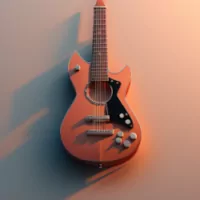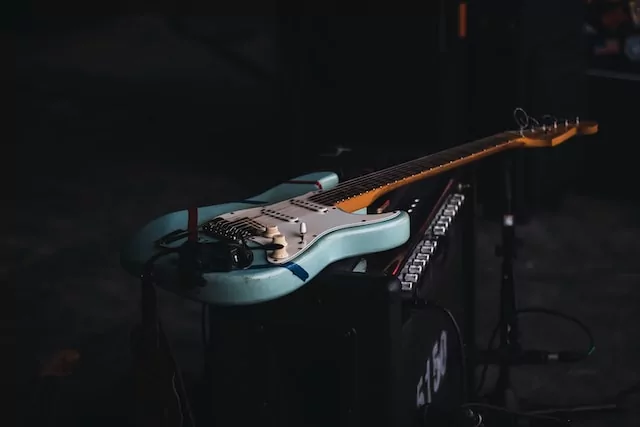The guitar, one of the most famous and recognizable musical instruments, has a centuries-long history. The guitar has developed to satisfy the demands of performers and spectators alike, from humble beginnings to becoming a symbol of revolt and expression in modern music. Looking ahead, the adventure of the guitar is far from over. Technological advancements, shifting musical tastes, and the desire for innovation are altering the guitar’s future, promising an exciting and dynamic terrain for this timeless instrument.
The digital age has resulted in substantial developments in guitar technology, providing artists with novel tools and opportunities. Digital effects, amp modeling, and multi-effects processors have completely transformed how guitarists shape their tones. Guitarists now have a plethora of sounds at their disposal, ranging from classic antique tones to futuristic and experimental textures. This trend is expected to continue, with producers pushing the limits of tone shaping and sound manipulation.
Furthermore, developments in guitar synthesis and MIDI integration are broadening the instrument’s sound potential. Guitar synthesizers can imitate the sounds of other instruments or generate whole new, otherworldly sounds, providing users with new options for musical discovery and creation.
The use of virtual and augmented reality technologies has the potential to change the way guitarists study, practice, and perform. Virtual reality (VR) may transport guitarists to virtual concert halls or recording studios, allowing them to rehearse and play in an immersive environment. Augmented reality (AR) may superimpose virtual chord charts, tabs, and scales on the guitar neck, making learning and practicing more dynamic.
Furthermore, virtual reality and augmented reality platforms can permit collaborative jam sessions with artists from all over the world, enabling new kinds of musical collaboration and innovation.
Learn to Play the Guitar
As environmental concerns develop, the future of guitar building is expected to change toward more sustainable and eco-friendly methods. Guitar producers may investigate alternate materials and building procedures that reduce their environmental impact without sacrificing the instrument’s quality and tone. Sustainable tonewoods, recyclable materials, and environmentally responsible production procedures may become more common in the guitar industry.
In the future, guitarists may have more opportunities for customization and personalization, tailoring their instruments to their specific needs and preferences. 3D printing technology, for example, could allow for personalized guitar designs and shapes, catering to individual playing styles and ergonomic considerations. Musicians may be able to fine-tune their guitars’ specifications, from the pickup configurations to the body materials, to achieve their desired tone and playability.
The future of the guitar will most likely see a fusion of styles and influences as musical genres continue to combine and expand. Musicians can combine aspects of rock, jazz, techno, classical, and world music to create completely new musical environments. The adaptability and versatility of the guitar will be key in crafting these cross-genre musical expressions.
The growth of online learning platforms and guitar groups has already changed the way people learn to play the guitar. This tendency is likely to continue, with the availability of increasingly innovative and engaging online materials. Guitarists can receive high-quality tutorials and interactive lessons, as well as engage with other players from all around the world. The guitar community will thrive as a result of virtual connections, which will foster a global network of guitar aficionados who will share their knowledge and passion for the instrument.
Performance technology advancements may lead to augmented guitar performances, in which live guitarists include real-time effects, images, and interactive aspects in their sets. Guitarists may produce immersive and engaging live performances by combining gesture-controlled effects, holographic displays, and interactive lighting, blurring the barriers between music, art, and technology.
The evolution of the guitar is a promising and thrilling adventure, driven by innovation, technology, and creativity. Guitar technology advancements, virtual and augmented reality, sustainable practices, and online learning will continue to influence how guitarists approach the instrument. The versatility and adaptability of the guitar will ensure its continuous importance in the ever-changing world of music as musical genres mix and new styles arise. The eternal allure of the guitar stems from its ability to connect people, provoke emotions, and inspire creativity—a timeless instrument that will continue to evolve, surprise, and enchant future generations.

